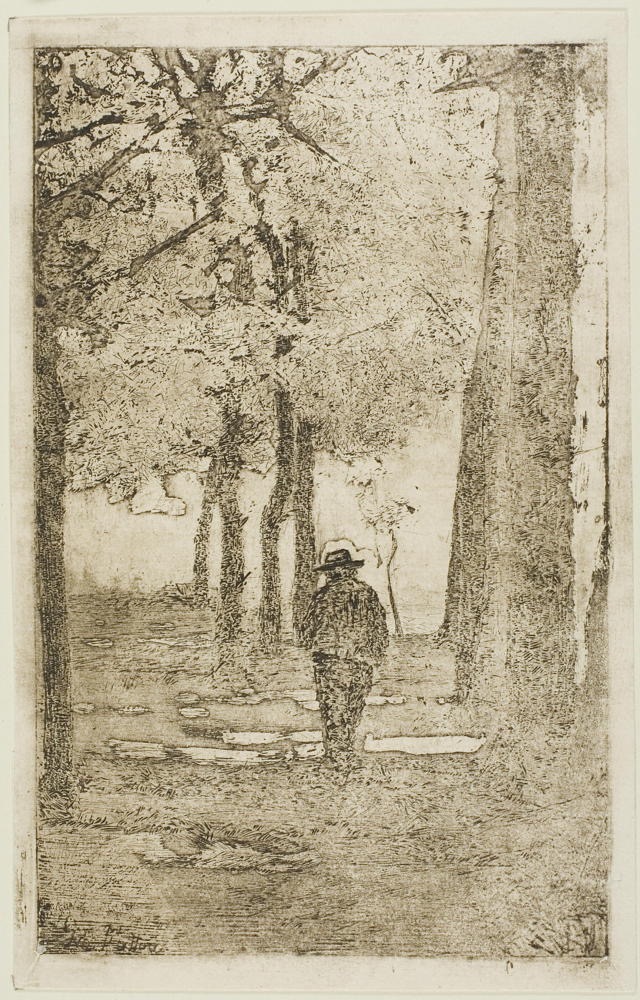RandomWalking

Giovanni Fattori: Wooded Walk with Figure (n.d.)
"Discovery better imprints than simple direction ever does."
The Muse uses an app to guide her volunteers in performing literature drops. A Literature Drop refers to a distinct kind of Canvassing, the purpose of which is not to contact anybody but to leave a piece of campaign literature where a resident can find it and get influenced. Lit Drops can cover an entire precinct in an afternoon, while door knocking and full-out Canvassing take much longer and might even prove less effective because of the reduced number of houses full-out Canvassing can cover. This app guiding the volunteers does not prescribe a path through a precinct. Instead, it presents a picture of the target houses arrayed on a map. Since precincts are essentially arbitrary constructions devised for purposes other than creating an easily walked-through route, the volunteer must concoct their path, which will inevitably seem to make little sense to any outside observer, often even the volunteer.
Pattern seeker that I have always been, I search each precinct map for a path of, if not least resistance, then at least one demanding minimum effort. Once out and on the ground, conditions sometimes seem very different from how I predicted they would be, calling for me to inject audibles into my play. I might crisscross one street and travel up one side, then down the other on another street, depending. Depending upon what I could not crisply explain, for I am almost RandomWalking. Complicating the whole exercise, the app sometimes hides some targets, forcing backsliding. We do not know why.
I dutifully check off every address as I deliver to it. Sometimes, a resident will catch me dropping lit. My guilty secret's been discovered like I'm a lousy undercover operative. I explain my mission, and most dismiss me with a wave. Some wish me well. Some want to chat for a spell. I'm open to every interruption because Literature Dropping can get grueling without them, especially after three hours, with an unknown number of additional houses yet to service. The work can come to feel distinctly open-ended. The path through each maze emerges through the application of intention and the various on-the-ground adaptations that seem necessary. I always feel amazed once I realize that I've finished another precinct. I stride back to my starting point, feeling like I own those streets.
RandomWalking produces a deep sense of belonging. Were I following a prescribed path, I could just go unconscious and complete the task. Given that it demands some free will to finish, I'm conquering, pacifying, or occupying the streets where I work. I construct an absolutely unique perspective on each precinct such that it feels like I've come to own it. I cannot feel like a stranger anymore after completing my RandomWalking. At first, the app disappointed me because it didn't guide me by suggesting a path through the map, but I've come to appreciate the necessity and the benevolence the absence of that path entails. Creating an algorithm capable of producing a course through such randomly distributed points would have been nearly impossible. It's much better for me to rely on my own sense of misdirection. I might get lost, but that's how I come to discover orientation. Discovery better imprints than simple direction ever does.
©2023 by David A. Schmaltz - all rights reserved


